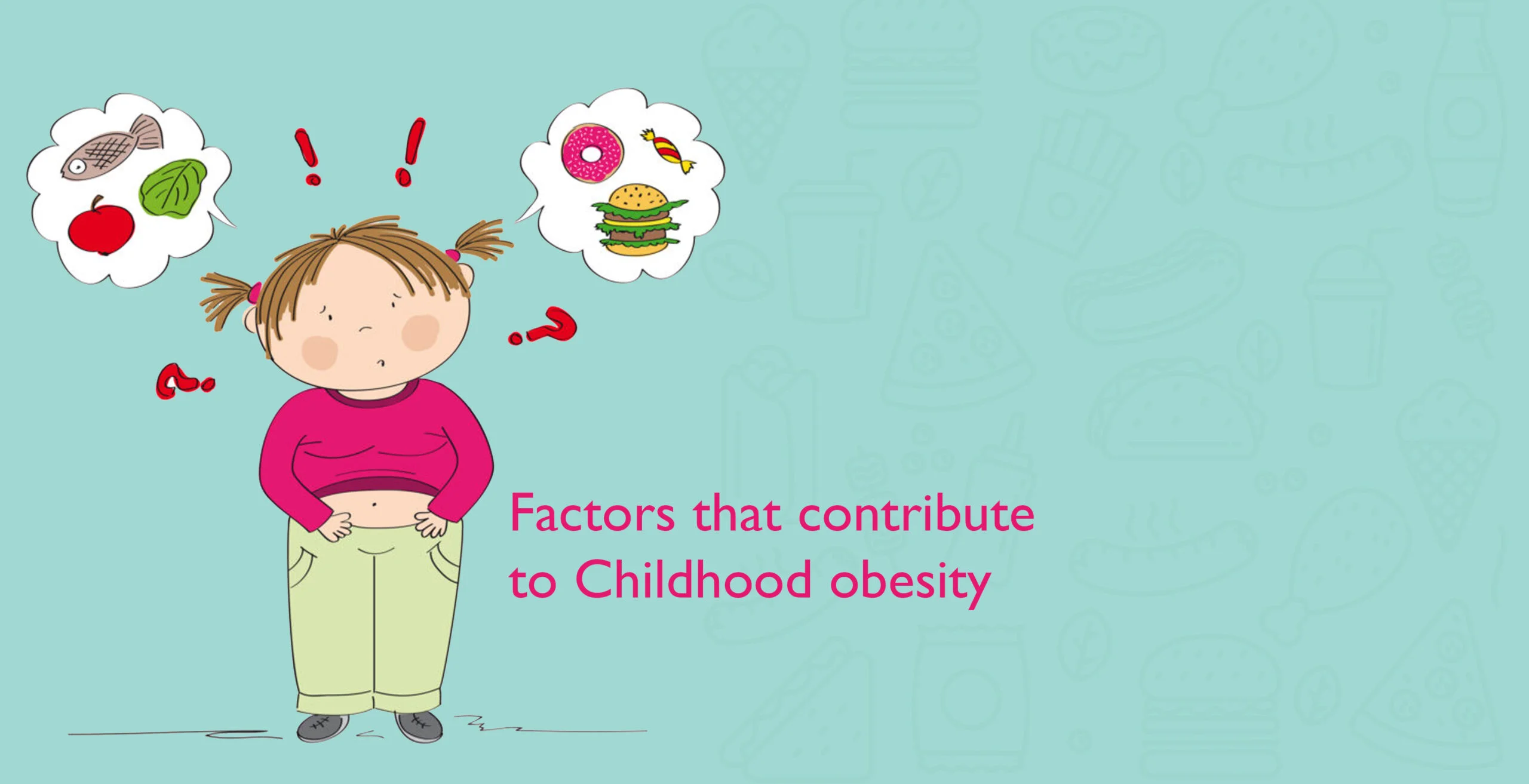Factors that Contribute to Childhood Obesity
Obesity in children is a serious medical condition that affects both children and adolescents, predisposing them to a myriad of health conditions. Childhood obesity predisposes them to a series of health conditions such as diabetes and hypertension later in their life. It can also have a mental toll on the child and results in developing low self-esteem and depression. Pediatricians recommend that parents take childhood obesity seriously and improve their eating patterns and exercise habits, so they can have a healthy future.
The accepted measure of overweight and obesity in children is their body mass index, which is a guideline of the children’s weight with respect to their height.
Factors predisposing to obesity in children:
The most important cause of childhood obesity is lifestyle issues when the child gains too many calories from food and performs little activity. Other factors that contribute to inappropriate weight gain in children are as follows,
Diet: If the child regularly eats high-calorie food, such as fast foods, snacks, baked goods, and sugary drinks, that can predispose the child to gain weight. Munching on too many candies and desserts can also result in weight gain.
Lack of activity: Children who are inactive and do not go outdoor for play and recreation, are prone to gain weight, as they do not burn calories as expected. Sedentary activities such as playing video games, watching television, etc., pushes them towards obesity.
Psychological factors: Family stress and children from broken families carry an increased risk of childhood obesity, as they tend to overeat to deal with their stress and to fight their boredom.
Family factors: At times obesity runs in the genes of the children, and if the parents are overweight, the child can also be obese. When these couples overeat and have less activity, the problem is doubled.
Socio-economic factors: In some families, people spend so much on high-calorie food such as frozen meat, sugary drinks, desserts, and baked items and they have the habit of buying and eating in large quantities. When food is readily available, children tend to eat them all through the day and turn obese.
Medications: Some prescription medications can increase the risk of developing obesity in children. These medicines include propranolol, prednisone, gabapentin, etc.
Complications of obesity:
Obesity can predispose the child to serious complications such as Type 2 diabetes, high cholesterol, and high blood pressure, fatty liver disease, joint pains, and breathing problems. Asthma is common in children who are overweight and they can also develop sleep apnea. If your child is overweight or is not age-appropriate in size, it is best to consultation a Pediatrician to prevent them from encountering future complications.
Bottom line:
The best way to prevent obesity in children is to keep them active and plan their activities for the entire day. Parents should offer them healthy snacks and encourage them to take ample vegetables and fruits, rather than desserts and junk food.

 Appointments
Appointments




.webp)
_Symptoms,_Causes,_Diagnosis,_Prevention_and_Treatmen.webp)